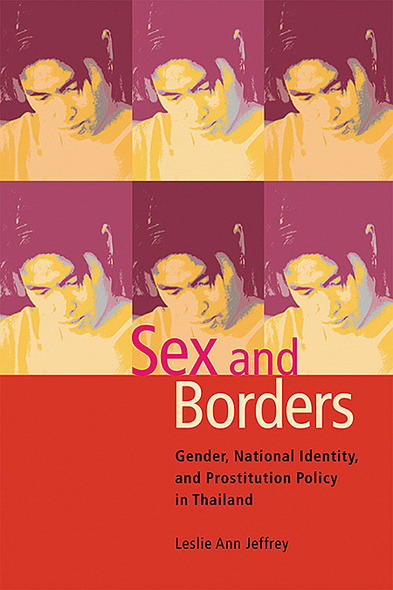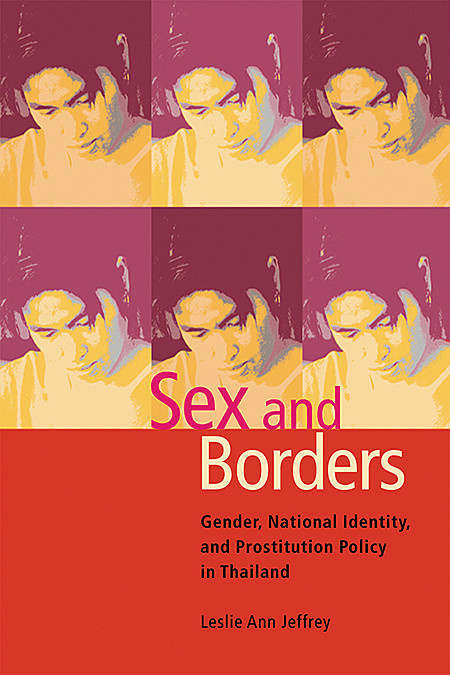
Sex and Borders
Gender, National Identity and Prostitution Policy in Thailand
Prostitution in Thailand has been the subject of media sensationalism for decades. Bangkok’s brothels have become international icons of “third world” women’s exploitation in the global sex trade. Recently, however, sex workers have begun to demand not pity, but rights as workers in the global economy.
This book explores how Thai national identity in such an economy is linked to prostitution and gender. Jeffrey asserts that certain images of “The Prostitute” have silenced discourses of prostitution as work, while fostering the idea of the peasant woman as the embodiment of national culture. This idea, coupled with a will to shape the modern state through the behaviour of middle-class men, has been a main concern of Thai prostitution policy. Gender, Jeffrey argues, has become the mechanism through which states respond to the contradictory pressures of globalization and nation-building.
Sex and Borders is essential reading for those interested in gender studies, Southeast Asian studies, and the politics of prostitution.
A timely, interesting and well-documented study of the impact of Western (neo) imperialism on the construction of different prostitution policies (and on the lives of real prostitute women).
This is an important and original study of gendered processes in postcolonial nationalisms and nation-building. Clearly and accessibly written, it will be of substantial interest to scholars and teachers of postcolonial history, anthropology, public policy, and feminist studies.
An excellent book. I read it with great enjoyment. It is full of interesting details and the argument is well constructed. For feminists interested in the issues of prostitution, and those studying Southeast Asia, this book will provide a substantial and well-researched addition. It will become a key reference within this area of scholarship.
Acronyms; Acknowledgments
Introduction
1 Gender, Prostitution, and the “Standards of Civilization”
2 Peasants, Prostitutes, and the Body Politic: Prostitution as Cultural Decline and Political Resistance in the 1960s and 1970s
3 Elite Women, the Reconstruction of National Identity, and the Prostitution Problem
4 Women’s Groups and the Prostitution Question: Prostitution Law under Premocracy
5 The Politics of Prostitution and the “New Man”: The 1996 Prostitution Law, International Image, and Middle-Class Masculinity
6 The Middle Class and the Material Girl: The 1996 Prostitution Law and the Disciplining of Peasant Women
7 The Politics of Prostitution: Gender, Class, and Nation
Appendix; Notes; Bibliography; Index




